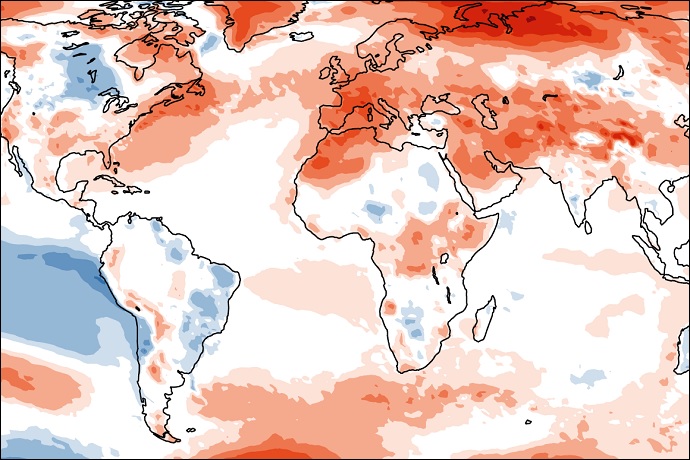According to Reuters, the World Meteorological Organization and the European Union’s Copernicus climate monitoring agency reported on Monday that with the ongoing rise in temperatures due to climate change, Europe is witnessing an increase in extreme heat waves that are becoming increasingly difficult for the human body to handle.
A recent study by Copernicus and the WMO reveals that the highest number of European regions experiencing severe, very severe, or intense heat stress in a single day was 41% of Southern Europe, during a July heatwave.
This information highlights the potential dangers of extreme heat for various populations, particularly outdoor workers, the elderly, and individuals with pre-existing medical conditions such as diabetes and cardiovascular diseases. These groups are more susceptible to the adverse health impacts associated with such weather conditions.
In the previous July, certain regions of Italy experienced a 7% increase in deaths compared to normal. One such case involved a 44-year-old man from Lodi, who was painting road markings and unfortunately fell, resulting in his passing.
Heat stress combines factors like temperature, humidity, and human body response to evaluate the environmental impact on health.
In 2023, various regions across Spain, France, Italy, and Greece experienced up to 10 days of severe heat stress. This condition is characterized by temperatures that seem like they are over 46 degrees Celsius, necessitating immediate action to avoid heatstroke and other health issues. As per a recent study, heat-related fatalities in Europe have risen by nearly 30% over the past two decades.
Last month, the European Union’s environment agency urged governments to ready their healthcare systems for the consequences of climate change and to establish EU guidelines to protect outdoor workers from extreme heat.
In light of recent events, it is crucial to acknowledge that Earth experienced its hottest year on record last year, with Europe being the fastest-warming continent. The main driver behind this unprecedented heat was attributed to greenhouse gas emissions, with El Nino weather patterns also playing a role in exacerbating the situation.
As warmer atmospheric conditions can hold more moisture and lead to heavier precipitation upon release, heat plays a significant role in causing extreme weather events, such as floods.
Last year, 1.5 million people in Slovenia were impacted by these floods. In Greece, a wildfire covering 960 square kilometers occurred, which was twice the size of Athens and marked the largest wildfire in EU history. Between 2022 and 2023, alpine glaciers experienced a 10% decrease in their remaining volume.
Carlo Buontempo, the head of the Copernicus Climate Change Service, mentioned that certain events in 2023 caught the scientific community off guard due to their intensity, rapid onset, widespread impact, and prolonged duration.










